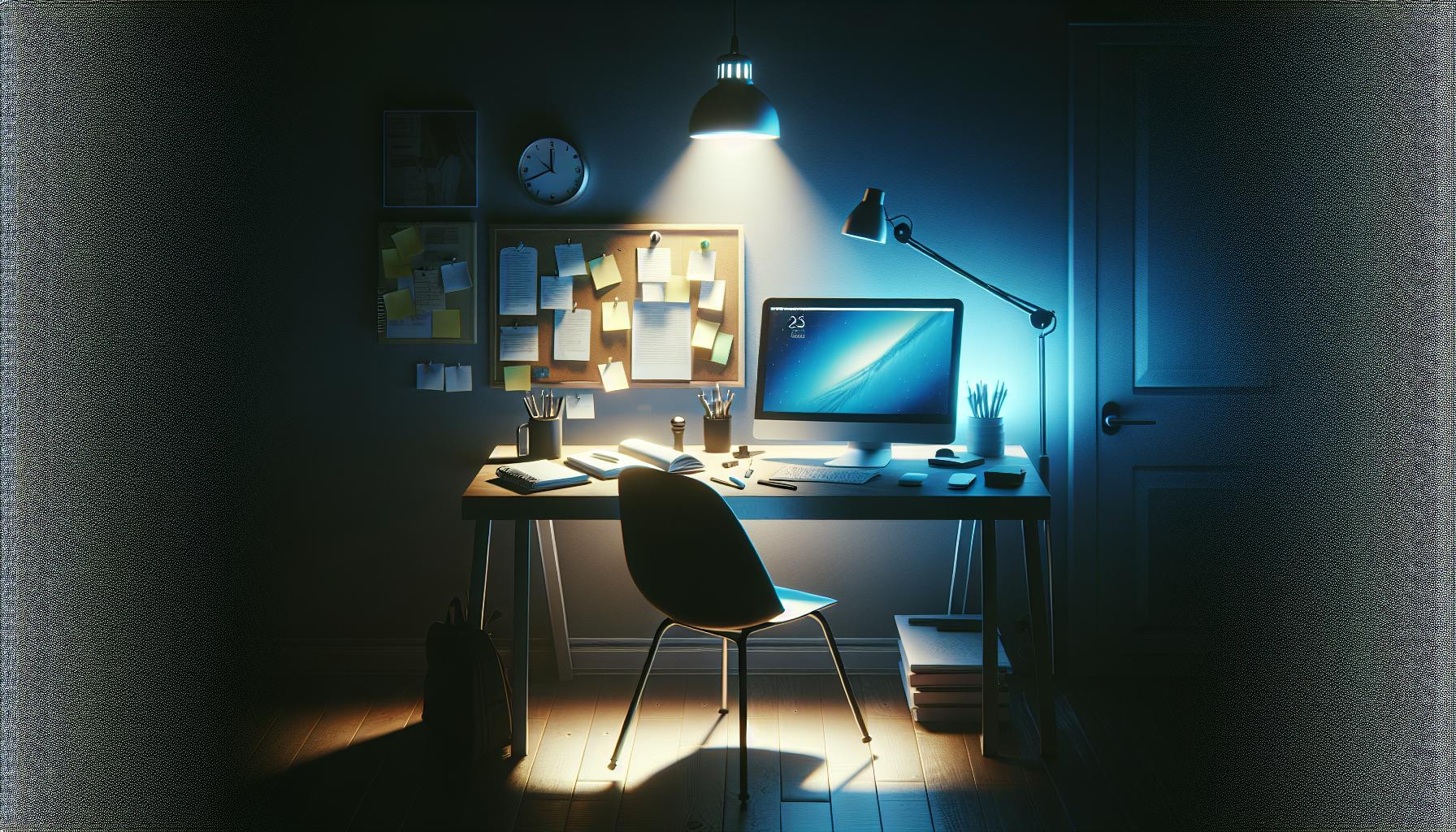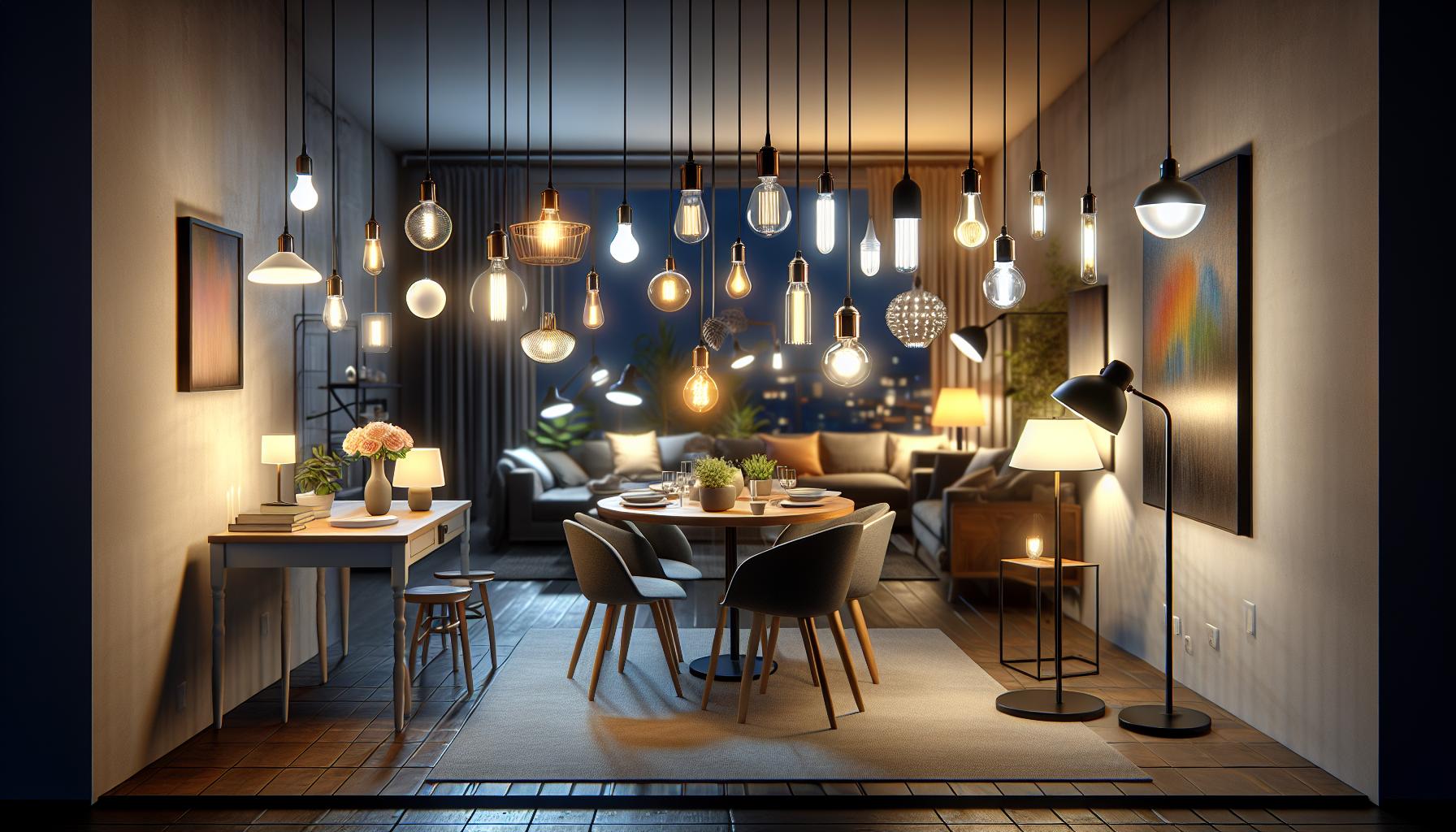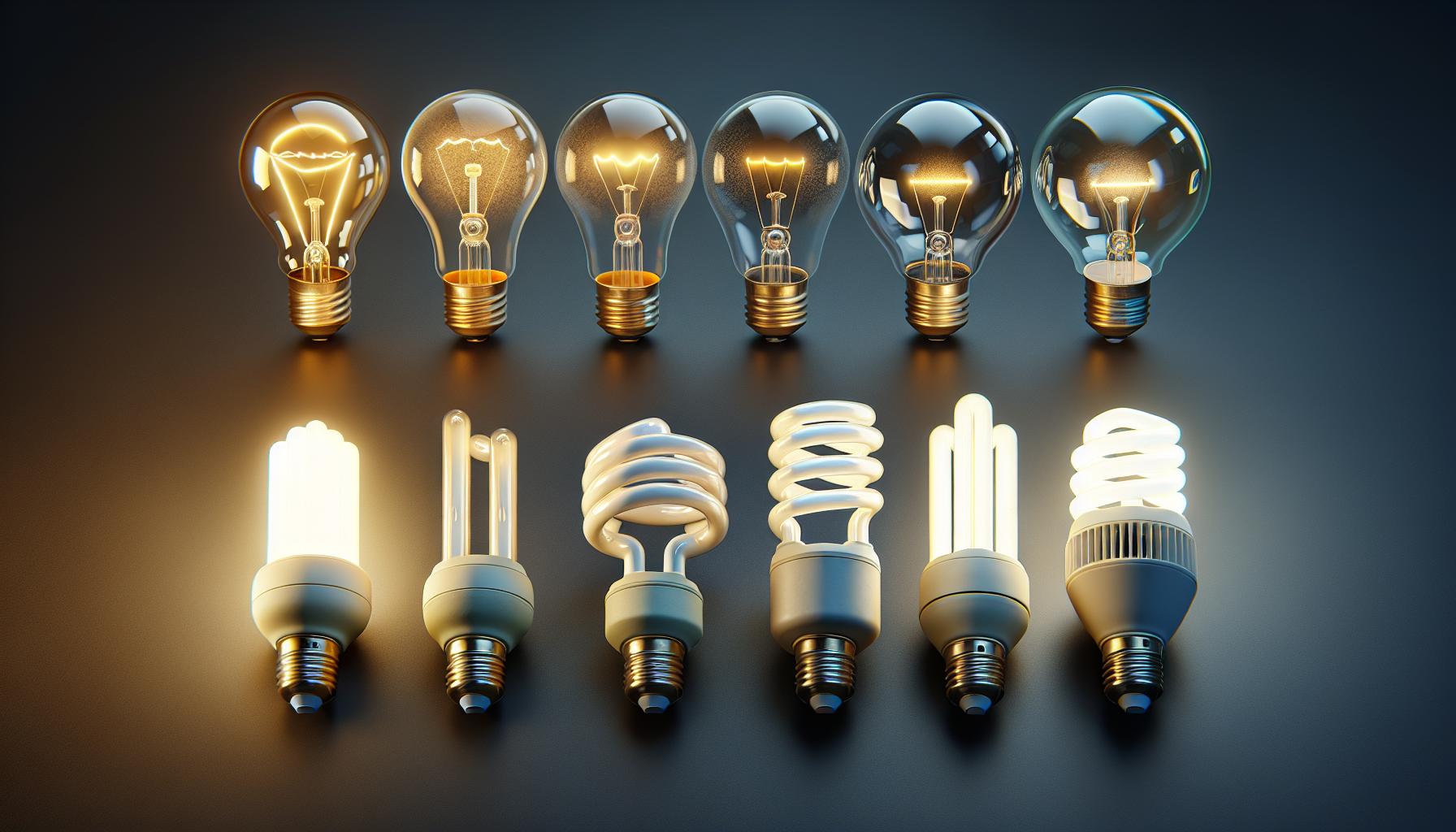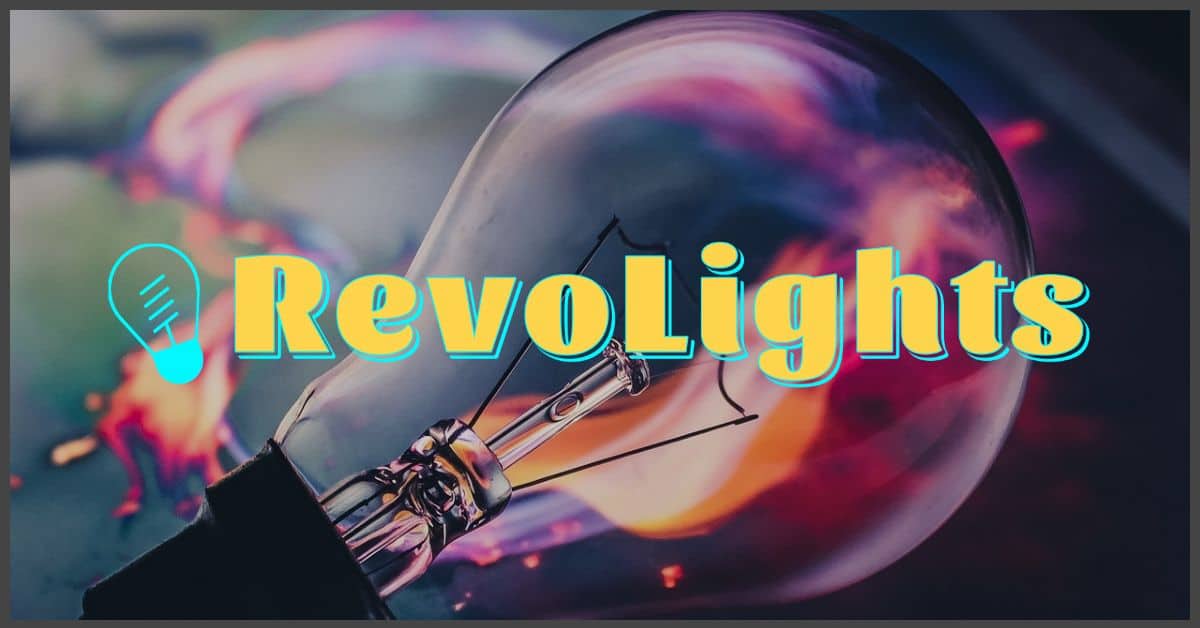Imagine life without the humble light bulb. You’d be relying on candles or gas lamps, struggling to see as the sun sets. Now, think about the moment you flick a switch and a room is bathed in light. That’s the beauty of the light bulb, an invention that’s illuminated our lives since the 19th century.
It’s easy to take for granted, but the light bulb is a cornerstone of modern society. It’s extended our days, improved our productivity, and just made life simpler. From streets to homes, it’s hard to find a place untouched by its glow.
The light bulb isn’t just a source of light; it’s a symbol of human ingenuity. Its invention sparked a revolution in how we live, work, and play. Let’s delve into why the light bulb is not just good, but a brilliant invention.
The Importance of the Light Bulb
When you think about the role of the light bulb in your life, it’s hard not to be amazed by its sheer significance. It’s not just about being able to see in the dark—this invention has quite literally brightened every aspect of human existence.
Illuminating Spaces and Minds: One of the key attributes of light bulbs is their ability to transform any space. With the flip of a switch, a dark, unwelcoming room becomes a cozy retreat or a productive workspace. Whether you’re troubleshooting a leak under the sink or putting the finishing touches on a home DIY project, the light bulb is your trusty companion, making sure that you can concentrate on the task at hand without straining your eyes.
- In homes, light bulbs create ambiance and contribute to decor.
- In workplaces, they enhance focus and reduce the likelihood of errors.
- In outdoor settings, they enhance safety and security.
Energy Efficiency and the Environment: Over the years, advancements in light bulb technology have resulted in energy-efficient options like LEDs and CFLs. These bulbs use significantly less electricity and last longer than traditional incandescent bulbs, evidencing how innovation keeps this invention relevant and eco-friendly.
| Bulb Type | Average Lifespan | Energy Usage |
|---|---|---|
| Incandescent | 1,000 hours | High |
| CFL | 8,000 hours | Medium |
| LED | 25,000 hours | Low |
Cultural Impact: It’s easy to overlook, but the light bulb has had a profound cultural impact as well. From enabling the first movie screenings to illuminating historic events, the light bulb has been a witness to human progress. It’s a beacon that not only lights up our surroundings but also serves as a metaphor for ideas and innovation.
The conveniences brought about by the light bulb extend beyond just visual benefits; they’ve had ripple effects across numerous industries. Advanced lighting systems in healthcare facilities, for example, play a critical role in patient care and recovery. It’s undeniable that this simple piece of technology has become integral to modern life.
Extending Our Days with Light
Ever since the sun sets, you’re no longer constrained by the natural cycle of daylight and darkness. That’s because the humble light bulb has extended the hours during which you can actively live and work. Before the advent of electric lighting, people’s activities were largely limited to daytime, which affected productivity and limited leisure activities to a few daytime hours.
Consider how this has changed. With the flick of a switch, you’re able to transform night into day. This has had a profound impact on nearly every aspect of life. Shops stay open later, people work various shifts, and kids can study after dark. It’s a simple but monumental shift that enables a more flexible and productive society.
Remarkably, this extended day creates various benefits:
- Increased productivity: Factories and workplaces operate 24/7, significantly boosting economic output.
- Enhanced learning: Students have the flexibility for night classes and study sessions, which can lead to better educational outcomes.
- Leisure time: Evenings are filled with activities, from sports to entertainment, thanks to artificial lighting.
It’s not just about longer hours, though. The quality of light significantly affects how well you perform tasks or enjoy activities. Good lighting can reduce eye strain and increase focus, turning your evening hours into productive or relaxing ones.
Key Takeaways:
- Continuous operations of businesses and services are now possible, leading to a never-sleeping economy.
- Flexibility in scheduling is enhanced, allowing you to plan your life without being restricted to daylight hours.
« Are Smart Light Bulbs Energy Efficient? Uncover the Surprising Truth
What Do Light Bulbs Work? Unlock the Future of Lighting Innovation »
Imagine doing your favorite DIY projects or reading in a cozy corner late into the night. Light bulbs don’t just extend our days; they expand the possibilities of what you can achieve and enjoy, no matter the time. As you switch on a lamp and bask in the glow, it’s clear how this invention has truly illuminated the way forward.
Enhancing Productivity through Illumination
Think about the last time you settled into a late-night work session or burned the midnight oil on a DIY project. Chances are, you flipped on a light switch. Without adequate lighting, those precise tasks or detailed projects would be near impossible. Your go-to companion through countless tasks? The humble light bulb.
Artificial lighting extends the possibilities of when and where you can be productive. Early risers and night owls alike benefit from the light bulb’s ability to mimic daylight at any hour. Here’s a bright idea – light doesn’t just ward off darkness; it boosts your ability to concentrate and work more efficiently. Studies show that workers in well-lit environments report higher productivity levels.
- No eyestrain
- Better focus
- Detailed work made easy
These are just some of the perks you reap when your space is illuminated properly. In a well-lit room, you’re less likely to make mistakes or overlook details. That means projects are completed faster and with greater accuracy.
Home isn’t just where the heart is – it’s often where the office is, too. Home offices need to be designed with lighting in mind. Striking that perfect balance between soft and bright lighting can lead to a surge in your productivity. And when it comes to your weekend DIY projects? Opt for cooler, bright white bulbs in your workspace to replicate natural daylight, making those minute measurements and delicate cuts a breeze.
It’s worth noting that different types of bulbs play a role in how effectively you can work. LED bulbs, for instance, are not only energy-efficient but also provide a clean, steady light that’s ideal for both high-focus tasks and creating a warm ambiance post workday.
So, the next time you’re planning a late-night study session or gearing up to tackle that complex model airplane kit, think about the role lighting plays. It’s not just about seeing better – it’s about working smarter. With the right light bulb, the sky’s (or rather, the ceiling’s) the limit.
Simplifying Everyday Life
Imagine your life without the simple flip of a switch. Before the advent of the light bulb, daily tasks were bounded by the availability of natural light. Now, you’re not constrained by the sun’s schedule. Instead, your life has been made exceedingly more convenient thanks to this brilliant invention.
Light bulbs have become an integral part of your daily routine. From the moment you wake to the late hours you spend finishing up a project or reading in bed, light is always just an arm’s length away. Look around your home, and you’ll notice a multitude of bulbs, each suited to a specific task:
- Ambient lighting sets the mood in your living areas, allowing for relaxed and comfortable spaces.
- Task lighting, as in your home office or kitchen, offers targeted illumination that makes chopping vegetables or pouring over documents easier and safer.
- Accent lighting highlights your favorite artworks and creates focal points that showcase your personal style.
For those who love diving into a DIY project, the right lighting is essential. It ensures that you don’t miss any details, whether you’re painting a room or assembling a new piece of furniture. And let’s not forget about security; outdoor lighting has become a key element in home safety, deterring unwanted visitors and illuminating paths to prevent trips and falls.
This is more than just a convenience; it’s a transformative aspect of modern living. The reliability and versatility of modern lighting have elevated the concept of home, work, and leisure, intermingling these once clearly defined areas into a blend that suits your multifaceted lifestyle.
In a nutshell, the light bulb is about simplifying your life in ways both profound and mundane. It has quietly revolutionized everything from your household chores to your leisure time, becoming an unsung hero in the narrative of everyday progress. With an array of options from LEDs to halogens, achieving the perfect lighting for any scenario has never been simpler or more accessible.
The Light Bulb: A Symbol of Human Ingenuity
When you think about the milestones of human innovation, the light bulb shines prominently as a beacon of progress. Thomas Edison’s patented invention in 1879 wasn’t the first of its kind; however, it was the first to offer a practical solution for everyday use. Its brilliance lies not just in providing illumination but in representing the undying human spirit to solve complex problems.
Imagine the ripple effect of such a simple device. For years, your ancestors relied on natural light, which was unreliable and limited. The light bulb fundamentally shifted this dynamic, allowing you to extend your productive hours well into the night. More than an object, it’s a symbol of human determination and potential.
In today’s fast-paced DIY culture, the significance of comprehensive lighting can’t be overstated. Whether you’re working on a delicate piece of jewelry or laying out the intricate wiring of a home renovation, the right light bulb facilitates precision and accuracy. It’s not just about seeing clearly; it’s about the profound connection between optimal lighting and the successful completion of a project.
Let’s talk about variety in lighting. You’ve got incandescent, LED, halogen, and fluorescent, each with its own set of advantages. LED, in particular, stands out for their longevity and energy efficiency. Here’s a quick comparison of average lifespans among different bulb types:
| Bulb Type | Average Lifespan (hours) |
|---|---|
| Incandescent | 1,000 |
| Halogen | 2,000 |
| Fluorescent | 8,000 |
| LED | 25,000 |
As a lighting aficionado and DIY enthusiast, you recognize that choosing the right bulb goes beyond just functional lighting; it’s also about creating ambiance and mood. A warm, soft glow can make a room feel cozy and inviting, while bright, white light can energize a space and increase alertness.
Each bulb type serves its purpose, but it’s the ingenuity behind these inventions that truly changes the game. The development of light bulbs showcases human creativity and adaptability, reminding you that even the most routine items in your home are the products of remarkable human achievement. As you switch on a lamp or install a new fixture, take a moment to appreciate the centuries of innovation that brighten your world every day.
Conclusion
Reflect on how the humble light bulb has revolutionized your life. It’s not just about seeing when the sun goes down; it’s about the countless ways it has shaped society and your daily experiences. From the comfort of a well-lit home to the efficiency of your workspace, light bulbs are a testament to human creativity. Embrace the brilliance of this invention as you flick a switch effortlessly, and remember the ingenuity that continues to illuminate your world.
Frequently Asked Questions
What impact has the light bulb had on society?
The light bulb has extended our days, increased productivity, and made daily tasks simpler. It has fundamentally transformed our living and working spaces, enabling us to perform activities around the clock.
How does the light bulb affect our focus and the environment?
Proper lighting with light bulbs enhances focus and task efficiency. While traditional bulbs were less energy-efficient, modern light bulbs, such as LEDs, are more environmentally friendly due to lower energy consumption and longer lifespans.
What does the light bulb symbolize?
The light bulb symbolizes human ingenuity and progress. It represents a pivotal innovation in history that has influenced modern society significantly, exemplifying our ability to solve problems through creativity and technological advancement.
How important is lighting in DIY culture?
Comprehensive lighting is crucial in DIY culture as it aids in precision and safety while undertaking various projects. Different types of bulbs can create the ideal lighting environment, catering to the needs of specific tasks or aesthetics.
What should we appreciate about the development of light bulbs?
We should appreciate the centuries of innovation that have culminated in the advanced, efficient, and versatile lighting options available today. The development of light bulbs showcases human creativity and adaptability, brightening our world and improving our quality of life.





